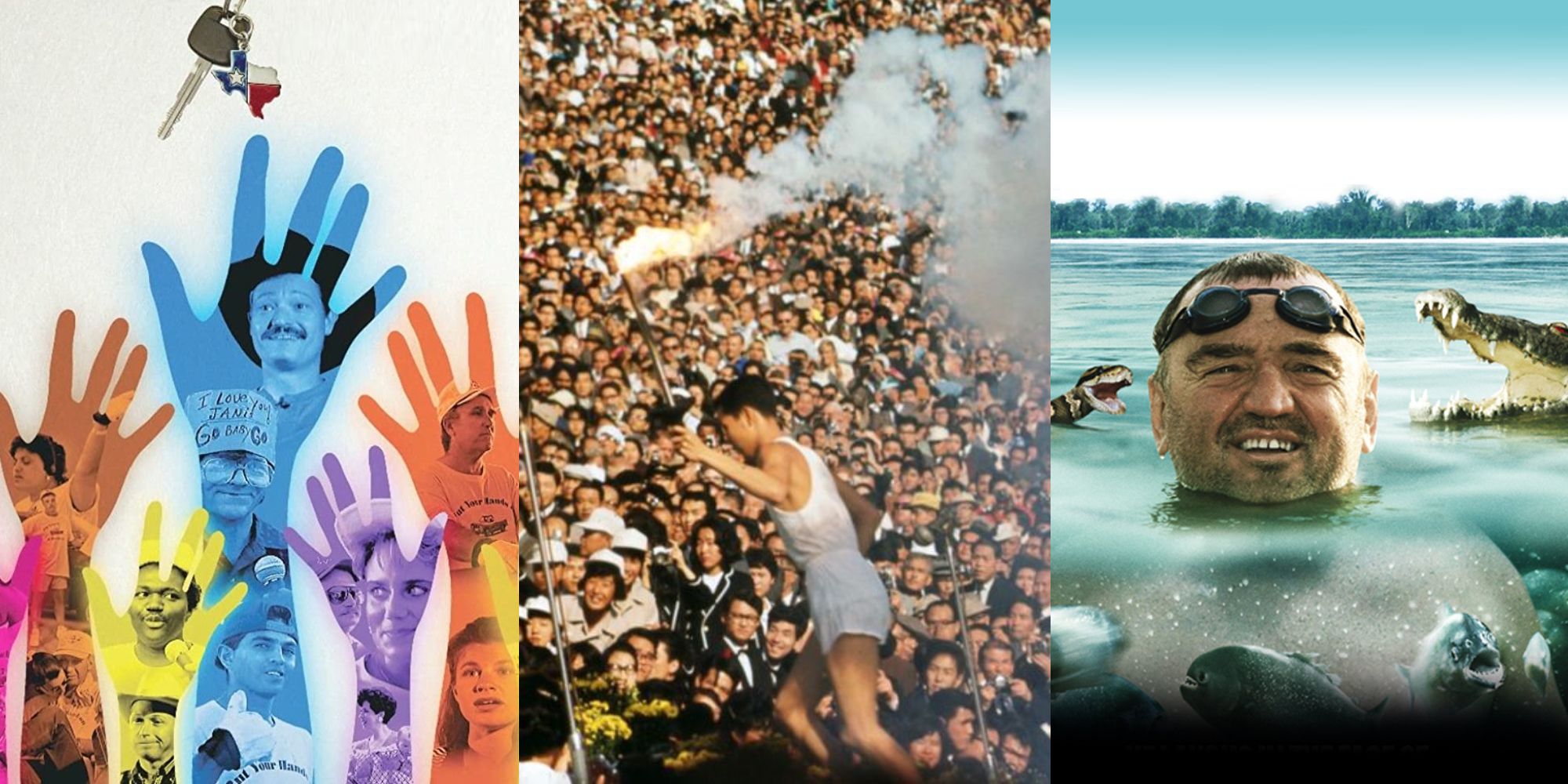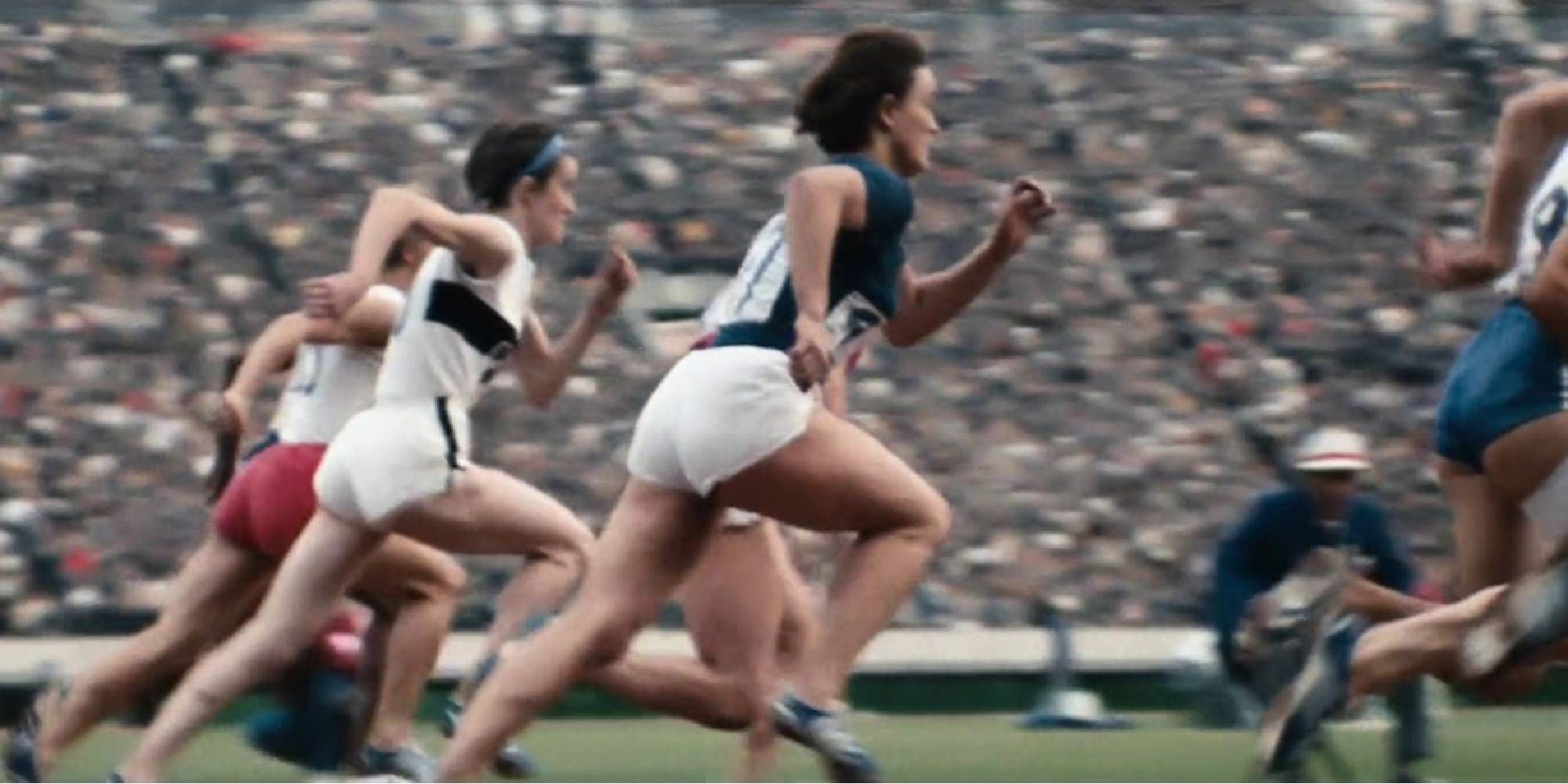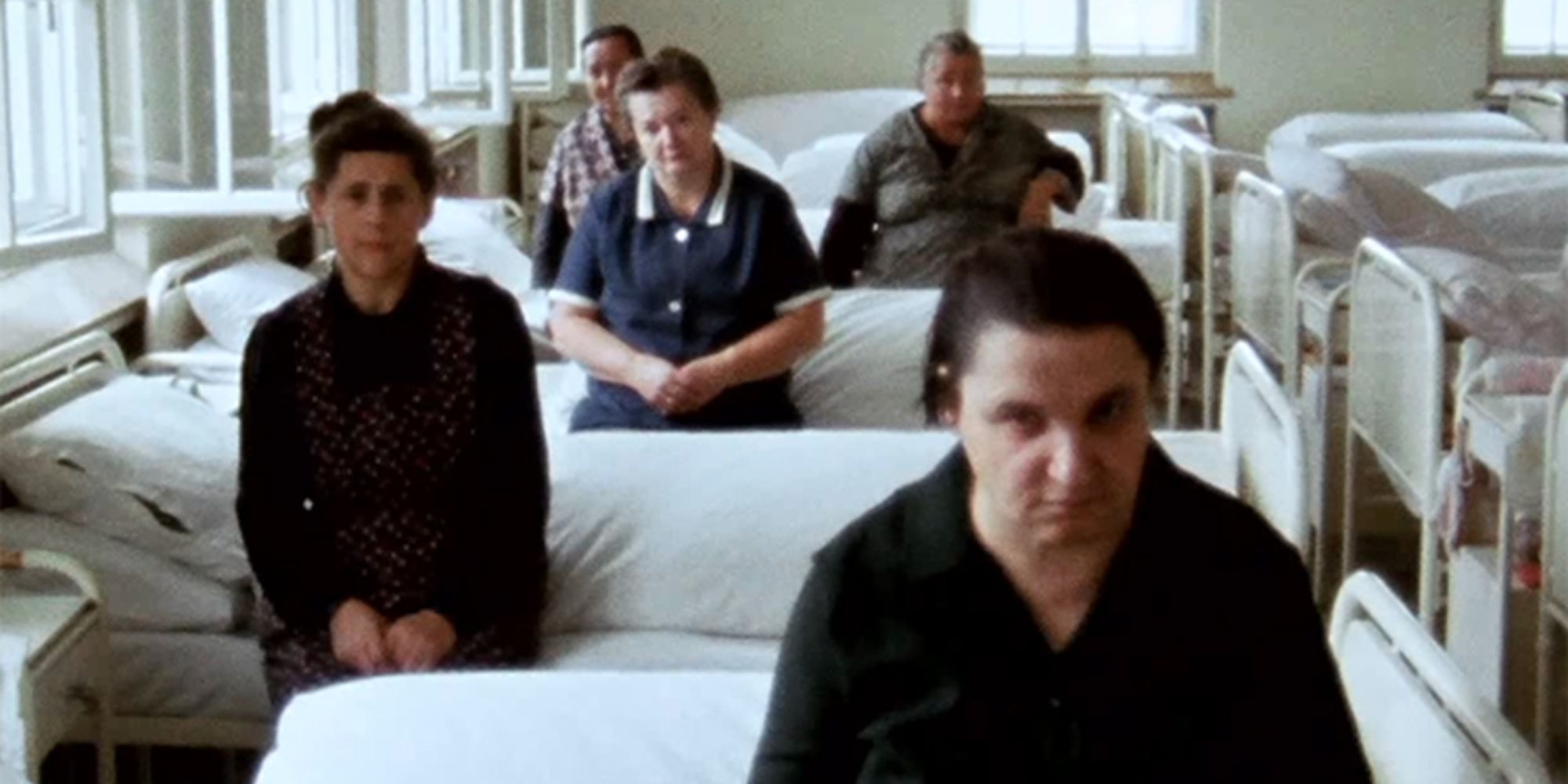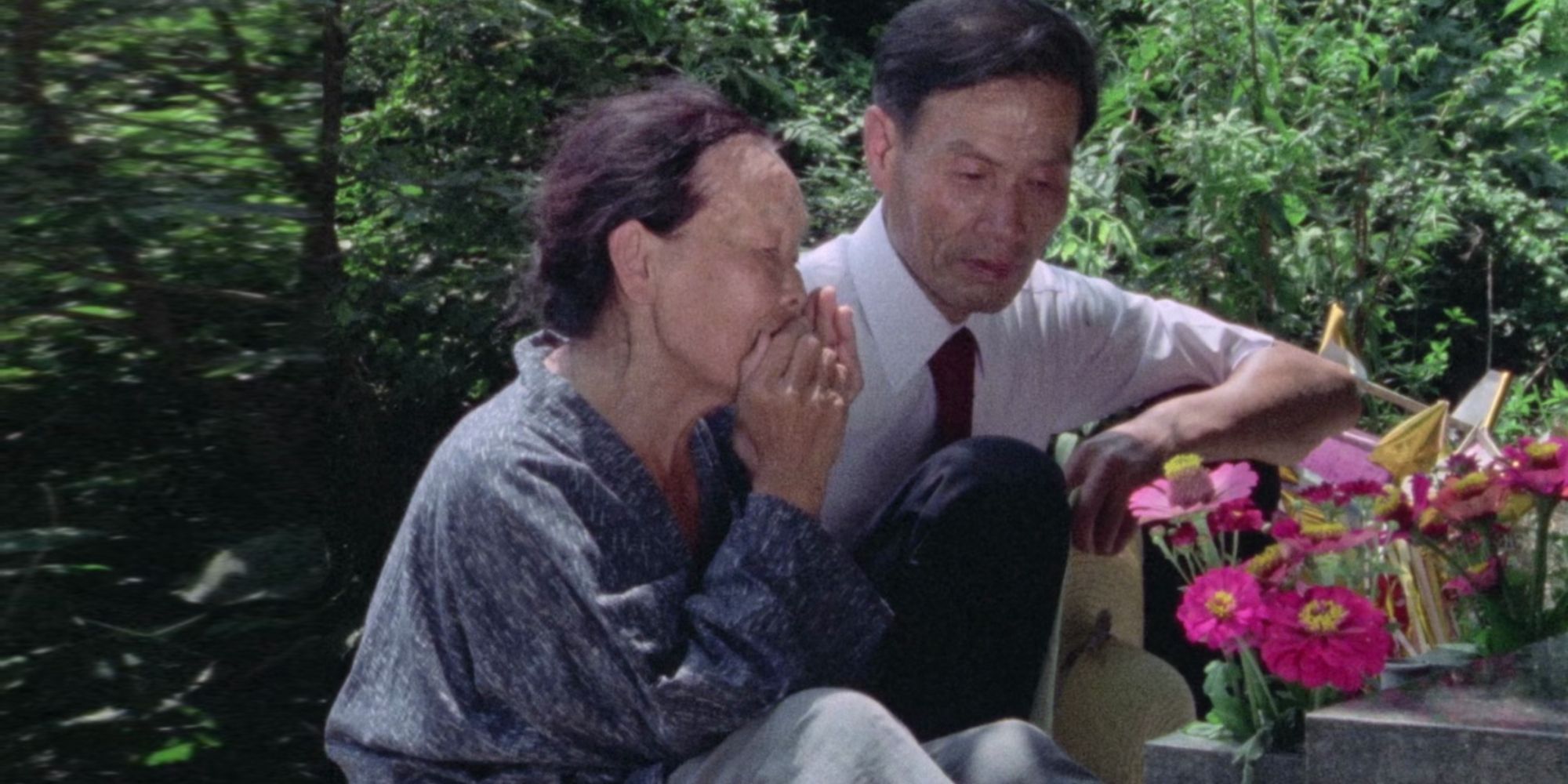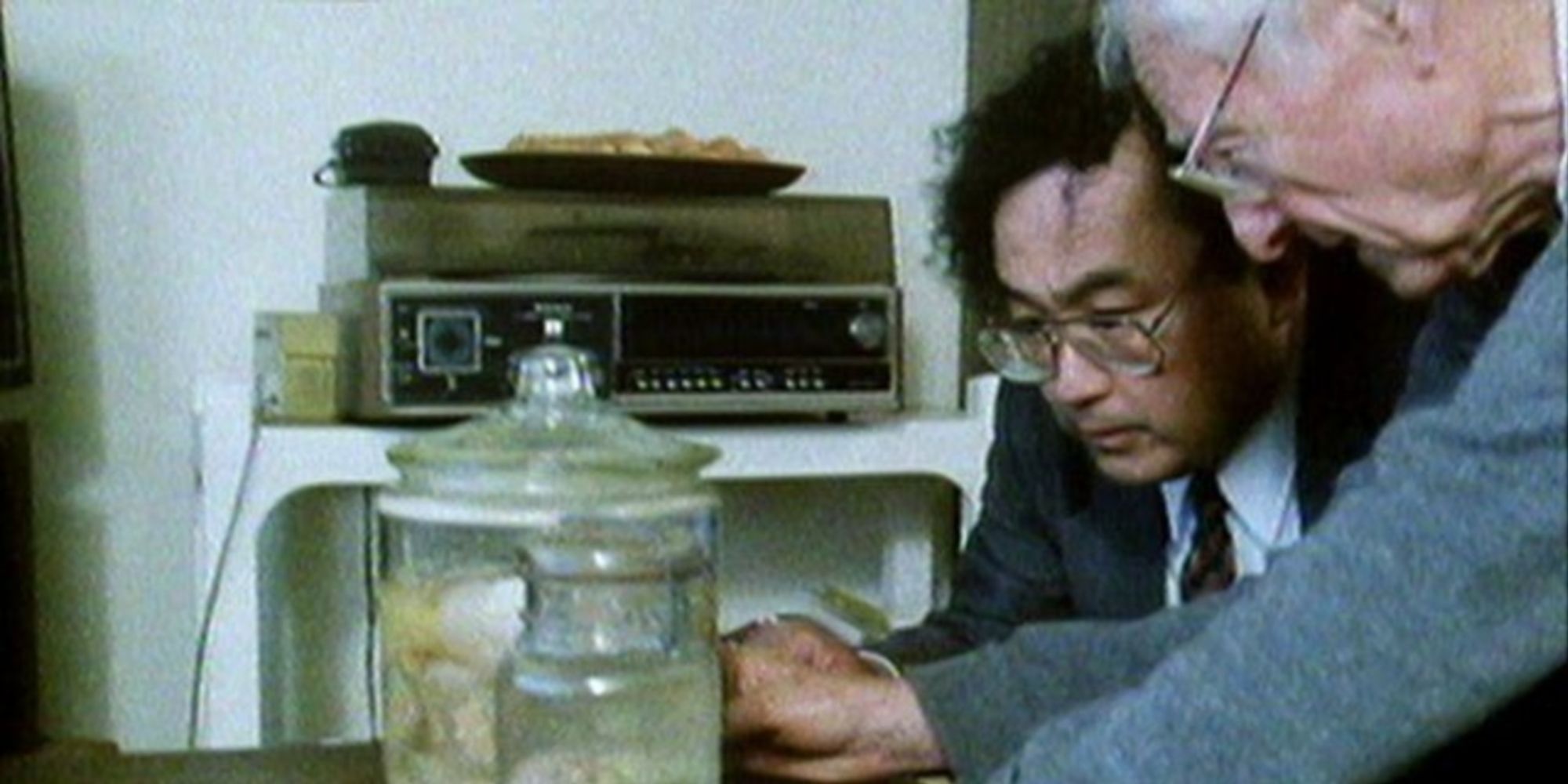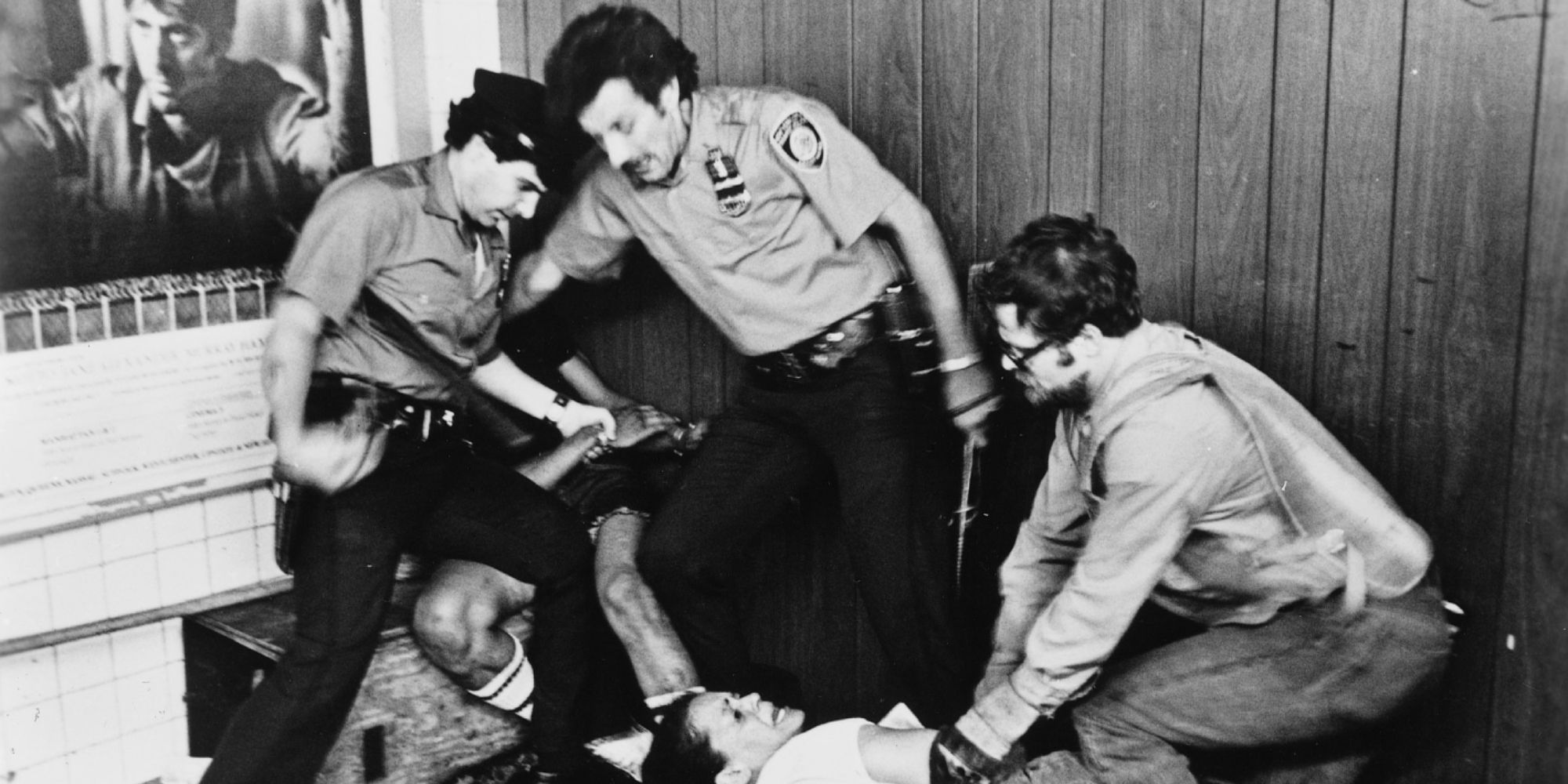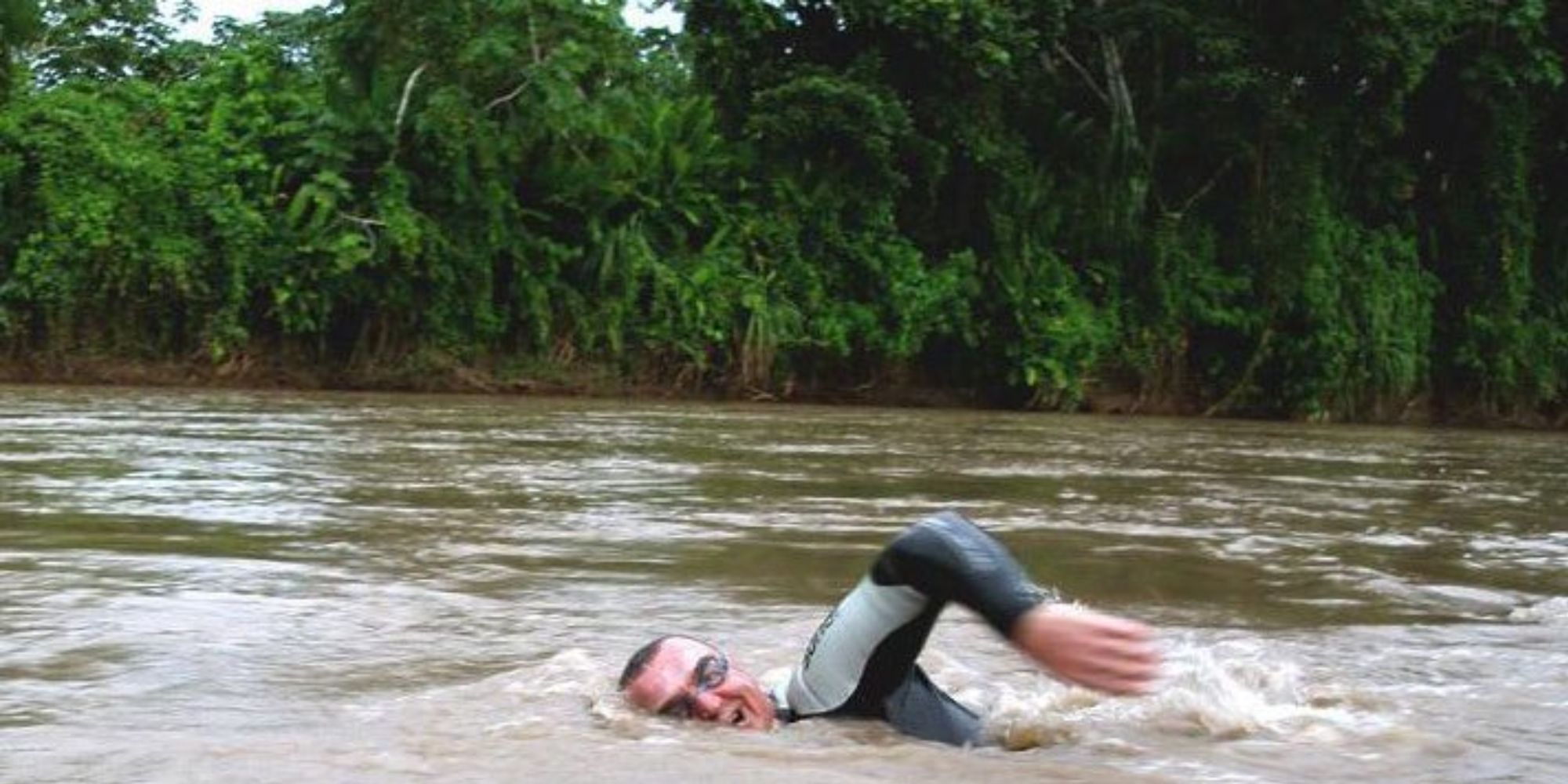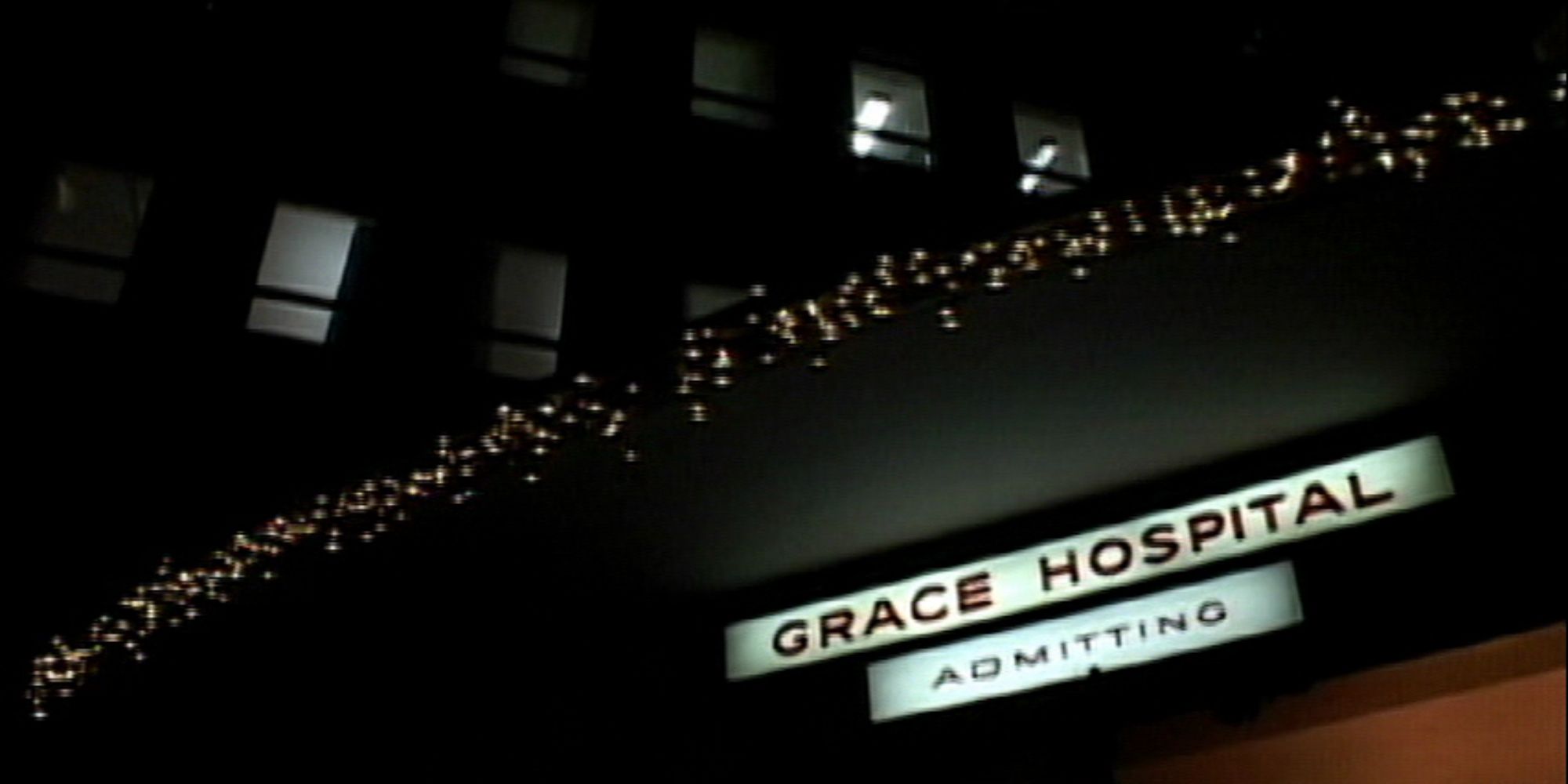There are so many documentaries out there. Sometimes, it feels like too many. The number's also ballooned further in the 20-30 years, thanks to the emergence of relatively affordable recording equipment that allows many people to capture whatever they choose to. Considering that professional movies can be shot on mobile phones, it stands to reason that the tools to document people, places, or events are now in the hands of more people than ever before.
All that means is that the overwhelming feeling you might get when picking a documentary to watch isn't going away any time soon. There is a handful of great, unique, and quite strange documentaries that you might not have seen before. Undoubtedly, all are worth a watch for any documentary aficionado. To keep the theme of picking lesser-known documentaries, all the following have been seen by 5000 viewers at most on the movie-focused social media app, Letterboxd, as of the time of writing.
'Tokyo Olympiad' (1965)
Famed Japanese director Kon Ichikawa was tasked to document the 1964 Summer Olympics in Tokyo. He did so in a thoroughly bold and artistic way. The resulting film — clocking in at almost three hours — captures the grace and beauty of all the Olympic events in a way that ordinary broadcasts on television usually fail to do.
Fantastic camera work, editing, and music make this engaging from the opening ceremony to the closing one and throughout all the sporting events covered in between. You don't even need to be a huge fan of watching sports to appreciate this for the filmmaking alone, and it still stands as the gold standard for sport-related documentaries.
'Land of Silence and Darkness' (1971)
One of the earliest feature films of the brilliant German director Werner Herzog, Land of Silence and Darkness, is a look into the life of Fini Straubinger, a woman who lived most of her life being both deaf and blind. Throughout the film, Herzog documents other individuals who also live with Straubinger's condition and gives an insight into how life is for those who can neither hear nor see.
The result is sad, moving, and very engrossing. To watch it is probably the closest most will come to understanding how such a condition would impact one's life. But on the other hand, to see how they function, communicate, and find happiness is inspiring in its own way. Herzog handles the whole documentary perfectly, being respectful and never exploitative to the individuals he covers throughout.
'Hands on a Hardbody: The Documentary' (1997)
Hands on a Hardbody has a simple, rock-solid premise. It covers an endurance challenge where people place one hand on a truck and aren't allowed to sit down, lean on the truck, or take their hand off. The last person left standing with their hand on the truck wins the truck. That's it.
Its simplicity makes it a satisfying watch, and the quirky contestants who viewers come to know throughout add another layer of entertainment to the proceedings. It's pretty bizarre, but funny at points, and it even gets surprisingly suspenseful during the latter stages of the competition. This is a must-watch for anyone interested in seeing a quirky group push their bodies and minds to the limits in an even quirkier challenge.
'The Emperor’s Naked Army Marches On' (1987)
The Emperor’s Naked Army Marches On is a tense and provocative Japanese documentary. It bears some similarities to 2012's Oscar-nominated The Act of Killing, as both look back at and shed light on horrible atrocities that most of the world seems to want to forget about or ignore.
In The Emperor’s Naked Army Marches On, those atrocities were committed in the final days of WW2, and ex-soldier Kenzo Okuzaki, the subject of the documentary, is shown going to extreme lengths to find out the truth about what happened and determine who's responsible. He's driven equally by his desire for personal redemption and his hatred of authority, and he makes for a fascinatingly complex central figure. It's a difficult documentary that offers no easy answers and discusses many troubling topics, but it's fascinating, unique, and a very important film.
'Murder on a Sunday Morning' (2001)
A true-crime documentary that's truly great — and can be watched without carving out a whole afternoon — Murder on a Sunday Morning covers the trial of a teenage boy in Florida who was accused of shooting and killing a 65-year-old woman in a botched armed robbery.
It features tight editing, a powerfully told story, a suspenseful final act, and some fantastic insight into the flaws of the American justice system and the way it can endanger innocent people. At the same time, it's a somewhat rare, positive depiction of the profession of defense lawyers, as public defenders — who argue for the boy's innocence — Patrick McGuinness and Ann Finnell come across as quite heroic, all things considered.
'Relics: Einstein’s Brain' (1994)
Documentaries don't get much more oddball or obscure than this. It seems to only exist on YouTube, and only because it looks like someone recorded it off a Swedish TV station before putting it on YouTube (so you have to watch it with Swedish subtitles, basically).
But thankfully, it hasn't been lost to time because it's a surreal, funny, and unique little documentary. It follows a Japanese professor by the name of Kenji Sugimoto as he travels to the United States with one goal: to find (and hopefully study) the brain of Albert Einstein. His determination is very endearing, and a good chunk of the film is him going up to random people and asking them if they know where Einstein's brain is. It needs to be seen to be believed.
'The Killing of America' (1981)
The Killing of America is a shocking and hard-to-watch documentary about some of the most impactful acts of violence committed in the USA throughout the middle of the 20th century. Using often disturbing archive footage, it argues that Western civilization and its morals are in decline, so it's not exactly a cheery watch.
But it is compelling, and the insights it provides ensure it doesn't just feel like it's being shocking and provocative for the sake of it. A tough-to-watch documentary about tough, brutal times, it, unfortunately, remains relevant as long as violence exists.
'Big River Man' (2009)
Big River Man almost feels like a documentary rendition of Apocalypse Now, except there's no war or murder, the main character swims instead of being on a boat, and it's much funnier. It covers Martin Strel, an ambitious, middle-aged man who loves a drink or ten, as he sets out to swim across the entire Amazon River... all 3000+ miles of it.
It feels like it could be a mockumentary at times, but it'd still be great even if that were the case. It's funny, offbeat, and even inspiring in its own weird way. Intentionally or unintentionally, it feels like the best Werner Herzog documentary that Werner Herzog never made.
'Dying at Grace' (2003)
Dying at Grace is just about the toughest to watch documentary out there: the fact that it's not as well-known isn't surprising. In 2.5 hours, it depicts the last few months of life of five patients at a hospital in Toronto, all the way up until they breathe their last breaths.
It's confronting and troubling to watch, especially because it's all so inevitable. For those still alive who are brave enough to watch it, you may find yourself appreciating the life you live more than before. But to get there, you have to confront the bleak certainty of life-ending throughout this film, and some of the sights and sounds within are impossible to forget. It's a brutally honest double-edged sword of a documentary.

